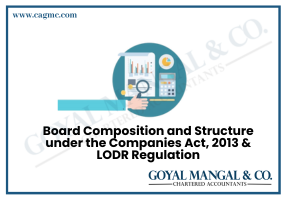
The right to partake in a company’s performance, income, and assets come with becoming a shareholder. Many shareholders, however, are unread of their rights. This right, which is held by everyone, has an impact on the company’s management, pre-emptive rights to freshly issued shares, and general meeting voting rights. The share capital of a firm is split into numerous classes, each with its own set of rights. According to Section 48 of the Companies Act, 2013, the rights attached to one class of the company’s shares can change from the rights attached to the other class of shares with the written permission of the shareholders. Now let’s get deeper and discuss more Variation of Shareholders’ Rights in this blog.
|
Table of Content |
What are the rights and privileges of shareholders?
Shareholders are essentially proprietors of a firm who benefit from its success. A shareholder is a person, firm, or organization that owns at least one share of a corporation’s stock. Shareholders play an essential role in determining the company’s profitability. There are two sorts of shareholders:
- Shareholders in the company’s stock or Equity shareholders: They are the equity owners of a corporation, as the name implies. These shareholders have voting rights in the company’s decisions. They can also use the rights outlined above, such as initiating class-action lawsuits against any matter that hurts the company.
- Shareholders with a preference: When it comes to profit distribution, preferred shareholders take precedence over equity stockholders. They do not, however, have the right to vote in matters involving a company’s executive choices. Furthermore, even if the company’s profitability is jeopardized, preference shareholders are entitled to fix dividend rates. Though the company’s strong performance increases the value of both equity and preference shareholders. The Equity Shareholders, on the other hand, experience bigger capital gains or losses.
What is the Variation of shareholder’s rights of a company?
Section 48 of the Act states that the rights associated with a company’s class of shares can change. Although it is possible with the written permission of shareholders owning more than three-fourths of the class’s issued shares.
It can also change by a special resolution passed by the shareholders of the issued shares of that class at a separate meeting. The shareholders, on the other hand, can approve a special resolution to change the rights linked to that class of shares if:
- if the company’s memorandum or articles of incorporation contain a provision for such change; or
- In the absence of any such provision in the memorandum or articles, if the terms of issue of the shares of that class do not prevent such variation.
If a variation by one class of shareholders affects the interests of another class of shareholders, the permission of three-quarters of that other class of shareholders must obtain, and the rules of the section must apply.
Mandatory Requirements for variation of shareholder’s rights
Aside from the aforementioned need, the following two are the most important and required requirements for shareholder rights variation:
- If a change by one class of shareholders affects the interests of another class of shareholders, three-quarters of shareholders must agree.
- Unlisted public companies with more than 200 members must pass the Special Resolution by postal ballot alone. [Section 110 of the Companies Management and Administration Rules, 2014, should be read in conjunction with Rule 22 of the Companies Management and Administration Rules, 2014.]
Procedure for variations of shareholder’s rights
- In the MOA or AOA, see if there is a provision for changing the rights associated to a class of shares.
- If, there is no provision in the memorandum for rights variation, the issue terms of the shares in that class do not restrict it.
- If the memorandum, or terms of issue do not allow for variation of shareholders’ rights, change the MOA or AOA to allow for variation of the rights linked to that class of shares.
- Obtain the consent of more than three-quarters of the issued shares of that class’s shareholders. Also, approve a special resolution at a separate meeting of the issued shares for a change in shareholders’ rights.
- Organize a general meeting and approve a special resolution to change the shareholders’ rights.
- Within 30 days of the special resolution pass at the general meeting, file MGT-14 with the Registrar of Companies.
Cancellation of Variation in shareholders right
If 10% or more of the issued shares do not vote in favour of the special resolution, the shareholders can petition the National Company Law Tribunal (NCLT). It is so in order to have the variation cancelled. When the shareholders submit an application with the NCLT to cancel the variation, the change will not take effect. However, until the NCLT verifies that the shareholders’ rights have changed.
However, within 21 days of the consent being provided or a special resolution being approved for the variation of such rights, the shareholders must petition the NCLT for cancellation of the variation. The shareholders are now bound by the NCLT’s ruling. The corporation must file the NCLT order copy with the Registrar of Companies within 30 days of the order date.
Conclusion
Shareholders have numerous rights in a corporation. Although, the rights of the shareholders in a company might vary depending on the class of shares. The rights linked with one or more classes of Share must change. As a result, it necessitates the procedures, which should follow in accordance with the Company’s MOA or AOA, or the terms of the issue of shares of that specific class.







